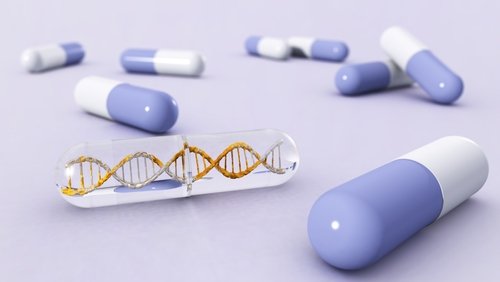FDA Grants NeuroVive’s KL1333 Orphan Drug Status for Treatment of Mitochondrial Diseases

Investigational compound KL1333 was granted orphan drug status by the U.S. Food and Drug Administration for the treatment of inherited mitochondrial respiratory chain diseases, NeuroVive Pharmaceutical AB recently announced.
The designation is a promising step for NueroVive’s KL1333 program because it will provide extra support from the FDA, including regulatory and scientific advice. The company hopes it will also help accelerate the development program, as well as the approval process. The status, which is given to therapies with the potential to treat rare diseases, will also give KL1333 market exclusivity for seven years in the U.S. after market authorization, as well as tax credits for clinical testing.
“The ODD [orphan drug designation] approval by the U.S. FDA is a validation of the quality of the KL1333 documentation to date and yet an important milestone for NeuroVive and the KL1333 project,” Erik Kinnman, CEO of NeuroVive, said in a press release. “The ODD will be beneficial to us in our efforts to rapidly document the effects and safety of KL1333 in genetic mitochondrial diseases and bring this novel treatment opportunity to the market and patients who are in great need of it.”
KL1333 is a potent regulator of the cellular levels of NAD+, a key molecule in the cell’s energy metabolism. In preclinical studies, KL1333 was able to increase mitochondrial energy levels, reduce the formation and accumulation of toxic compounds (e.g., lactate and free radicals), and induce the formation of new mitochondria.
The investigational molecule is in the clinical development stage for the treatment of primary genetic mitochondrial disorders, including mitochondrial encephalomyopathy, lactic acidosis and stroke-like episode (MELAS), Kearns-Sayre syndrome (KSS), chronic progressive external ophthalmoplegia (CPEO), Pearson syndrome, and myoclonic epilepsy with ragged red fibers (MERRF) syndrome.
KL1333’s mode of action is similar to that of NVP015, which fights energy crisis in genetic mitochondrial disorders with respiratory complex I dysfunction, and to NVP025, designed to protect the mitochondria in skeletal muscle cells from defective calcium handling and resulting muscle wasting.
Although primarily developed by the South Korean pharmaceutical company Yungjin Pharm, KL1333 was acquired by NeuroVive in 2017. The acquisition guaranteed NeuroVive exclusive rights for the development and commercialization of the therapy globally, except in Korea and Japan, where Yungjin Pharm retains its exclusive rights.
Both NeuroVive and Yungjin Pharm are collaborating on the first Phase 1 study (NCT03056209), which recently completed recruitment, to investigate the safety and tolerability of a single oral dose of KL1333 in healthy male volunteers. The first results from this trial are expected by June.
A Phase 1b multiple ascending dose study is expected to start in the second half of 2018, according to NeuroVive.
In December 2017, KL1333 was granted orphan drug status for the treatment of MELAS in the European Union.
Sweden-based NeuroVive is a leader in mitochondrial medicine, focused on advancing therapies for clinical development and into the market. The company’s portfolio involves several late-stage research programs for therapies to treat various diseases, such as genetic mitochondrial disorders, cancer, and metabolic diseases like nonalcoholic steatohepatitis.






